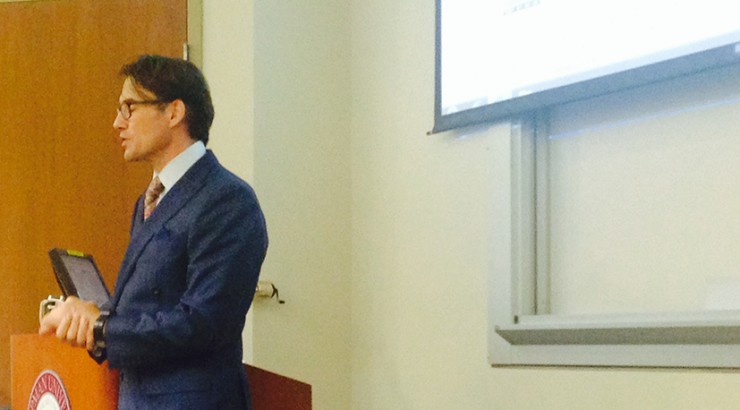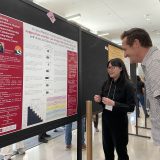
Law Professor Thomas Bell, Esq. Joins Schmid Students To Discuss Intellectual Property Law When it comes to software and technology law, the answer to your question is probably "It Depends."
November 24, 2015
In the computer age, being somewhat law savvy is almost as important as understanding basic HTML – you don’t need to have a law degree but the importance in knowing what’s protected when creating software applications can be incredibly important in the fast growing world of technology. On Wednesday, November 18th, Schmid College of Science and Technology hosted a special collaboration with the Fowler School of Law, where guest lecturer and law professor Thomas W. Bell, Esq. discussed the prevalent legal issues and challenges facing developers, entrepreneurs, and companies today.
Bell’s lecture covered the obvious and not-so-obvious pitfalls that exist in filing copyright and patents in the tech industry, specifically in regards to software coding and app development. Many of the students who participated in the lecture were computational data and sciences majors who are currently developing apps of their own and Bell, who started out doing law in the mid 90’s in Silicon Valley, knows a thing or three about tech law.
Questions from students ranged from “When should I register for copyright?” to discerning the differences between an assignment and a license. “Should I be keeping a license in the coding of my work?” was met with Bell letting the class know that putting the phrase “Copyright *Authors Name* ” somewhere in the work should be enough to make sure your work is protected. But ultimately, Bell’s answers could be summed up into two simple words: “It Depends.”
“It’s rather complicated, especially when you throw in open source stuff,” said Bell. “There’s always complications with the law.”
For those interested in learning more, Bell has an online course which can be found here that teaches, in depth, the specifics and potential follies of trademarks, patents, copyrights, and other forms of intellectual property.

